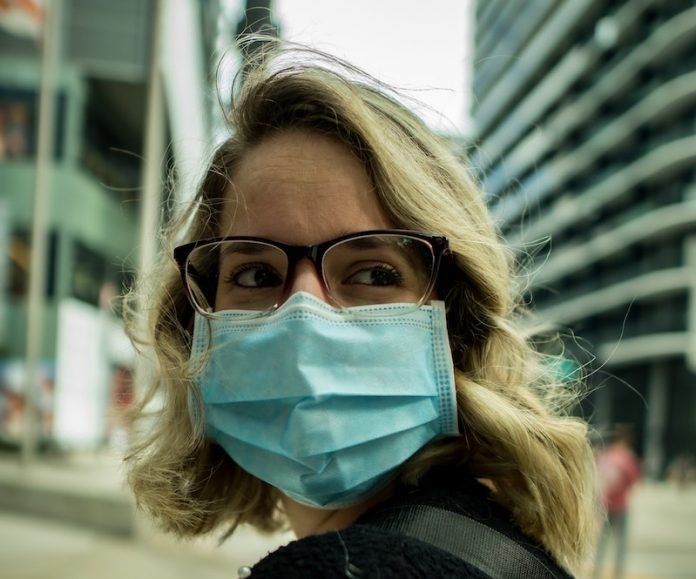
In a new study, researchers suggest that if you are going to buy a face mask to protect yourself and others from COVID-19, make sure it’s a three-layered mask.
They found an additional reason why three-layered masks are safer than single or double-layered alternatives.
The research was conducted by a team at the University of California San Diego and elsewhere.
Previous research has found that three layers prevented small particles from passing through the mask pores.
In the study, the team found that three-layered surgical masks are also most effective at stopping large droplets from a cough or sneeze from getting atomized into smaller droplets.
These large cough droplets can penetrate through the single- and double-layer masks and atomize to much smaller droplets, which is particularly crucial since these smaller droplets (often called aerosols) are able to linger in the air for longer periods of time.
The researchers studied surgical masks with one, two and three layers to demonstrate this behavior.
Using a droplet generator and a high-speed time-lapse camera, they found that large respiratory droplets containing viruses actually get atomized when they hit a single-layer mask, and many of these viruses pass through that layer.
A single-layer surgical mask only restricts about 30% of the droplet volume; a double-layer mask performs better, restricting about 91% of the droplet volume; while a three-layer mask has negligible, nearly zero droplet ejection.
The team notes that single and double-layer masks do provide protection in blocking some of the liquid volumes of the original droplet and are significantly better than wearing no mask at all.
They hope their findings on ideal mask pore size, material thickness, and layering could be used by manufacturers to produce the most effective mask designs.
One author of the study is Abhishek Saha, a professor of mechanical and aerospace engineering.
The study is published in Science Advances.
Copyright © 2021 Knowridge Science Report. All rights reserved.



